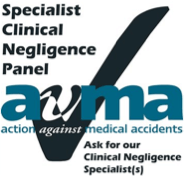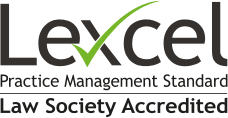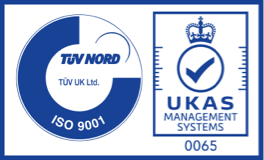Explanation of Legal Terms
A
Affidavit
A written statement that is signed by a litigant after swearing on oath. If the statement is untrue the person swearing the affidavit may be guilty of perjury.
After the Event Litigation Insurance
Insurance that can be purchased by somebody who is contemplating taking legal proceedings to cover the expenses that will be incurred if the claim is lost.
Application notice
A document that a party to a claim issues at court and serves on the opposing party stating an intention to apply to a Judge for an order relating to some aspect of the preparation of a claim for trial.
B
Bar Council
The body that regulates and represents barristers.
Barrister
A lawyer who gives legal opinions about specific issues, drafts certain legal documents used in court and appears in court as an advocate. Barristers usually work under specific instructions from a solicitor. They do not have overall responsibility for a case. That always rests with the solicitor.
Basic Charges
A solicitor or barrister’s normal charges for legal work.
Before the Event Legal Expenses Insurance
Insurance that can be purchased to cover the cost of taking or defending legal proceedings should they arise in the future.
Bill of costs
A document setting out a solicitor’s claim for costs showing each item of work carried out and the amount claimed for each item.
Bolam test
The legal test for deciding whether or not a doctor has acted in breach of his or her duty to provide an appropriate standard of care.
Breach of duty
The issue as to whether or not you received sub standard care.
C
Case management conference
A hearing before a Master or District Judge at which he/she sets out timetable for the steps that are to be taken by the solicitors for both parties before the case can be tried by a Circuit or High Court judge.
Causation
The issue as to whether or not any alleged sub standard medical care has caused injury and if so, to what extent.
CFA
An abbreviation for Conditional Fee Agreement.
Chambers
The term used to describe the offices that are used by barristers.
Circuit Judge
A judge who sits and tries cases in a County Court.
Civil Procedure Rules
These are the rules of court that govern how court proceedings must be conducted.
Claimant
The person who is bringing the claim.
Claim form
The document that must be filed with the court and served on the opposing party in order to commence a legal claim.
Clinical Negligence Scheme for Trusts
A government funded organisation that enables NHS Trusts to share the cost of meeting claims for negligence.
Community legal services
Financial assistance that is provided by the State to enable somebody to take or defend legal proceedings. It is also known as legal aid.
Compensation
The money that is paid to recompense injury and loss. Also known as Damages.
Compensation Recovery Unit
A section of the Department for Work and Pensions that deals with the recovery of social security welfare benefits. See the section “Repaying Welfare Benefits if Your Claim Succeeds”.
Conditional fee agreement
An agreement between a solicitor or a barrister and the client whereby fees are only charged if the client’s case succeeds.
Condition and prognosis reports
These are medical reports that set out details of your relevant medical history, your present medical condition and prognosis. They are needed in order to value your claim for general damages and to estimate your future care, therapy and housing needs. It is necessary to send a condition and prognosis report to your opponent when the proceedings are served and for an up to date condition and prognosis report to be prepared shortly before trial so as to assist the trial Judge in assessing the amount of the compensation.
Conference
A term that is often used to describe a meeting between a barrister and a client.
Consultation
The same as a conference but used when one of the barristers present is a QC.
Costs
The costs of a case comprise the fees of the solicitors, barristers and experts and the additional expenses that need to be incurred in order to pursue the case e.g. court fees.
Costs draftsman
A lawyer who specialises in preparing Bills of Costs.
Costs judge
A judge who sits at the Supreme Court Costs Office and deals with the assessment of Bills of Costs and in particular decides how much a losing party must pay a successful party towards the successful party’s costs of the case. A Costs Judge can also be asked to decide if a bill of costs, which a solicitor has rendered to a client, is reasonable.
Costs lawyer
A lawyer who is qualified to act only in relation to cost matters.
Counter schedule
A document that is prepared by the Defendants’ solicitors and which responds to the Claimant’s Schedule of Loss. It sets out the items in the Schedule of Loss that are agreed and the items that are not agreed, together with reasons for the disagreement.
County Court
A local court that has jurisdiction to decide cases with a value of £50,00 or less.
Court of Protection
A court that looks after the financial affairs and property of people who are incapable of managing their own financial affairs.
Cross examination
The questioning of a witness by a party other than the party who called the witness.
CRU
An abbreviation for Compensation Recovery Unit.
D
Damages
Another term for compensation.
Defence
This is the document that your opponent’s lawyers prepare and which sets out the reason why they dispute your claim.
Defendant
The person against whom the claim is made.
Deputy
A person (often a close relative) who is authorised by the Court of Protection to administer the financial affairs of somebody who is incapable of doing so themselves because of a mental impairment.
Detailed assessment
The procedure whereby the court considers a solicitor’s Bill of Costs and decides how much of it is to be paid by the opposing party or by the solicitor’s client as the case may be.
Disbursements
The expenses that we will need to incur in order to investigate and pursue your claim e.g. fees payable to experts and barristers and court fees.
Disclosure
This is the stage in the proceedings when we have to disclose to your opponent all the documents you have in your possession that are relevant to your claim.
Discovery
An obsolete term for Disclosure.
District judge
A judge who sits in a local court and deals with issues arising out of the pre-trial management of a case.
District Registry
A local office of the High Court, which deals with preliminary issues relating to the case. The trial will still take place at the Royal Courts of Justice in London.
Duty of care
The duty that all citizens have to every other citizen not to cause injury or loss through a lack of reasonable care.
E
Evidence in chief
The evidence given by a witness for the party who called him or her.
Expert reports
Before a party can use an expert to give evidence at court in support of a claim, the expert must first prepare a written report setting out the expert evidence that he or she proposes to give to the court. That report must then be sent to the opposing party. Unless this is done the expert will not be allowed to give evidence in Court.
I
Indemnity
A right of someone to receive from a third party money that he or she is themselves liable to pay.
Interim payment
A payment that is made by a Defendant to a Claimant before a case has been finished and which is intended to be a part payment of the damages that the Defendant expects to pay at the end of the case. It is usually only paid in cases where liability is not seriously in dispute.
L
Law Society
The body represents solicitors.
Leader
The same as a Queen’s Counsel.
Legal Aid Board
The predecessor of the Legal Services Commission.
Legal costs
The total costs of either taking or defending a legal claim. They comprise the solicitors and barristers’ fees and any expenses including VAT.
Legal executive
A lawyer who is qualified in one or more restricted areas of the law and who is only permitted to work as an employee of a qualified solicitor.
Legal Services Commission
The publicly funded body that organises and administers the various schemes that provide public funding for legal services. It replaced the former Legal Aid Board.
Liability
The same as Breach of duty.
Limitation
The rules laid down by Act of Parliament that specify the time limits within which a claim can be made.
Limitation period
The period of time within which a claim must be made.
List of documents
In order to comply with the obligation to give disclosure of documents to the Defendants we will ask you to identify all of the documents that you have or have ever had or which you can get hold of and which relate to your claim. We will then prepare a list of them which we will send to the Defendants.
Litigant
A person who is either bringing or defending legal proceedings, i.e. a Claimant or a Defendant.
Litigation friend
Somebody who acts on behalf of a litigant who is unable to manage their own affairs either because they are under the age of 18 years or have severe learning difficulties.
Lord Chancellor
A cabinet minister who is responsible for the operation of the courts and the legal system.
N
National Health Service Resolution (formerly NHS Litigation Authority)
The government body that arranges legal representation for NHS Trusts who are faced with claims for negligence.
Negligence
Sub standard medical care (i.e. breach of duty) that has resulted in injury (i.e. causation).
NHSLA
An abbreviation for The National Health Service Litigation Authority, now called NHS Resolution.
P
Part 36 offer
A formal offer to settle a claim, which is made by one party to another in writing. If the offer is rejected and the eventual award made by the court is no more favourable, the party who rejected the offer will be at risk of meeting both side’s costs of the case even though they won. Either party can make a Part 36 offer at any time, even before court proceedings have been issued.
Particulars of claim
This is the document that sets out the basis of your claim and which is filed with the court and sent to the Defendants when court proceedings are issued. It needs to set out the circumstances giving rise to the claim, why your opponent is thought to be liable and must be accompanied by medical reports setting out your injuries and a schedule setting out details of your out of pocket expenses and other financial claims, i.e. special damages.
Party
A litigant.
Periodical payments
Compensation that is paid by yearly or other periodic payments rather than as a lump sum.
Plaintiff
An obsolete term for Claimant.
Pre-action protocol
A statement of understanding between legal practitioners and others about the steps that should be taken prior to the issue of court proceedings and which the court expects to be complied with.
Privilege
The right of a party to refuse to disclose a document or to answer a question on the grounds of some special interest recognised by law.
Profit costs
An old fashioned (and misleading) term for solicitors fees.
Proof of evidence
An obsolete term for Witness Statement.
Protected Party
A party to legal proceedings who, whilst over the age of eighteen years, is incapable of managing his or her own affairs because of a severe learning disability so that he or she is required to have a Litigation Friend to conduct the claim for them. This is usually a parent or other close relative.
Provisional damages
If there is a possibility that a Claimant’s medical condition, which is linked to the claim, may deteriorate at some time in the future the court may award provisional damages for the injury that has been suffered so far with the specifically stated right for the Claimant to go back to the court later to claim further damages should the deterioration actually occur.
Public Guardian
A government agency appointed official who supervises Deputies.
Public Guardianship Office
A government agency that invests and manages funds that are held by the Court of Protection. It was previously known as the Public Trust Office.
Q
Quality Mark
A quality standard for solicitors that is laid down by the Legal Services Commission and which all solicitors must demonstrate that they comply with before they are to permitted to deal with cases that are funded by the Legal Services Commission.
Quantum
The value of your claim.
QC
An abbreviation for Queen’s Counsel.
Queen’s Counsel
A senior barrister who is given that title by the Lord Chancellor.
S
Schedule of loss
A document that is prepared by the Claimant’s solicitor and which sets out full details of the claim for economic loss (i.e. special damages and future loss).
Senior Court Costs Office
A division of the High Court in London that deals with the assessment of costs.
Service
The steps required by rules of court to bring documents used in court proceedings to a person’s attention.
Settlement
An agreement reached between the Claimant and the Defendants, which brings a claim to an end before it is decided by a Judge.
Silk
Another term for Queen’s Counsel.
Smith & Manchester award
Damages for a disability that will make it more difficult to obtain work.
The Solicitors Regulation Authority
The body that regulates solicitors.
The Solicitors Regulation Authority Clinical Negligence Accreditation Scheme
This is a scheme that is administered by the Solicitors Regulation Authority and which accredits individual Solicitors as being specialists in conducting clinical negligence claims on behalf of Claimants.
Special damages
These are damages that are intended to compensate for financial losses e.g. loss of earnings, travelling expenses, cost of care and housing adaptations that have been incurred prior to the date of trial or settlement. Any such losses that are incurred after the date of trial or settlement are known as future losses.
Split trial
A trial where different issues (e.g. breach of duty and causation) are dealt with at separate hearings.
Statement of case
The formal documents comprising a Particulars of Claim and a Defence that are filed at court and in which the Claimant and the Defendants set out details of their case.
Statement of Claim
An obsolete term for Particulars of Claim.
Statute barred
A claim that cannot proceed because it has not been made within the limitation period is said to be statute barred.
Statutory charge
If your case is funded by the Legal Services Commission (legal aid) and you succeed, the Legal Services Commission will require you to pay out of your compensation any shortfall between the total of our costs and the proportion that is payable by the Defendant. This is known as the statutory charge.
Sub judice
A rule that prevents publication of information that might prejudice the outcome of pending legal proceedings.
Success fee
The fee that a client agrees to pay a solicitor who takes on a case under a Conditional Fee Agreement but which is only payable if the case succeeds. It compensates the solicitor for the risk of being paid nothing at all if the case is not successful.
Sue
To issue a claim in the court.
Supreme Court
The final appeal court that hears appeals from the Court of Appeal.
W
Without prejudice
Negotiations with a view to a settlement of a claim are said to be without prejudice. This means that the circumstances in which the content of those negotiations may be revealed to the court are very restricted.
Witness statement
Before any witness is allowed to give any evidence in court a written statement must be prepared setting out all of the evidence that it is intended that the witness should give. That statement must then be signed by the witness and sent to the opposing party. Unless this is done the witness will not be allowed to give evidence in court.






